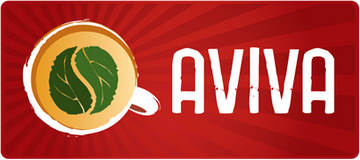When we submitted our Wild Harvest yerba mate to Medallian labs to have a nutritional analysis done, we had to determine how we wanted the sample tested- dry or wet. We elected to have a dry sample analyzed. The lab used 100 grams of our yerba to derive an exclusive nutritional breakdown. The reason for the dry sample compared to the wet sample is simple. People use different amounts of yerba and brew it with different methods. The results provide a good baseline to give us and our customers the true vitamins and minerals contained in our yerba mate. Please keep in mind that these results are for Aviva's Premium Wild Harvest yerba mate only. Other brands will vary.
| Potassium | 1450mg (27mg / 8oz cup) |
| Protein | 13.0% (.25% / 8oz cup) |
| Vitamin C | 19.9mg (.37mg / 8oz cup) |
| Calcium | 595mg (11.2mg / 8oz cup) |
| Iron | 18.5mg (.35mg / 8oz cup) |
| Pantothenic Acid | 0.790mg |
| Antioxidant Activity | 161000 umol TE/100g (3,037 umolTE / 8oz cup) |
| Caffeine | 1.09% (33mg / 8oz cup) |
| Flavonoids | 134mg / 2g sample |
| Calories | 6.6 Calories / 8oz cup |
| Carbohydrates | 5.47 Carbs / 8oz cup |
| Pure Vitamin E (standard antioxidant) | 201,000 |
| Aviva Yerba Mate | 161,000 |
| Red Beans | 11,459 |
| Raisins | 5,900 |
| Blueberries | 3,300 |
| Brocolli Flowers | 500 |
If you currently use the traditional yerba with sticks and stems, you can be sure of one thing.... Your intake of vitamins and minerals per serving will be far less than with pure leaf mate. The sticks and stems have no nutritional value. They are simply filler. Some folks claim they will add fiber to one's diet. This might be true if you actually pick out the stems and eat them. I think that old saying is perfect for the yerba mate business, "You get what you pay for"..... When you pay good money for a bag of mate, you should receive a bag of mate, not filler.
